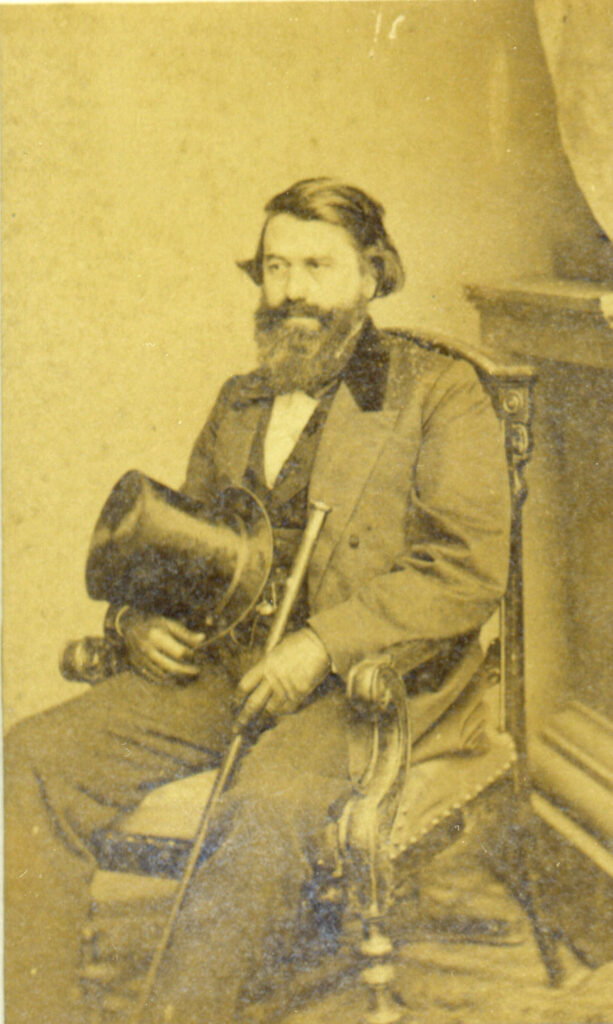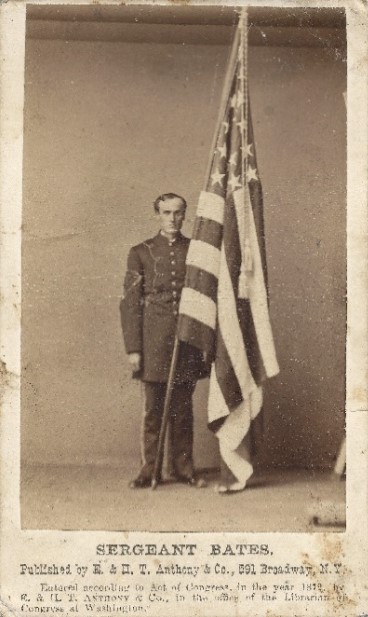Section #22 - The Southern States secede and the attack on Ft. Sumter signals the start of the Civil War
Chapter 292: Ft. Sumter Ends And “Then The War Came”
April 12-13, 1861
The Confederates Continue To Pound Sumter

The beleaguered defenders at Sumter actually see Fox’s undermanned fleet trying to make their approach in the high seas late on April 12.
Its failure seals their fate.
Around midnight they examine the damage suffered so far by the fort.
While the entire structure is pock marked by rounds, the outer walls remain largely intact. Inside it is a different story. Food has run out as has most of the wood needed for building fires.
Likewise, Anderson’s supply of ammunition is almost gone, and he cuts back to firing only six cannon before ceasing to respond entirely by the morning of the 13th. Meanwhile, the Pocahontas finally arrives overnight and the prior day’s storm blows over. But by now there is nothing Lt. Fox can do to change the outcome.
April 13, 1860
Major Anderson Surrenders

On July 13, General Beauregard decides that it is time to call off the slaughter.
He orders a boat be sent with Chestnut to again offer Anderson terms for surrender.
Before it can launch, the boisterous ex-Senator from Texas, Louis T. Wigfall, sets out on his own under a white flag and makes it to the door of the fort, where he is allowed to enter.
Wigfall says that he represents Beauregard and that if Anderson will agree to evacuate post haste, the same generous terms advanced earlier by Chestnut will hold.
Anderson agrees and runs up a white flag, just as the “official party” arrives.
After momentary confusion, an agreement is reached that the fort will be formally surrendered on April 14 at noon.
April 14, 1861
A Fatal Accident Mars The Surrender Ceremony

The Sumter garrison has been defeated, but its spirit is not broken, and Robert Anderson insists that the defense they have put up over the last four and one-half months be properly honored.
This includes a final roll call assembly for his troops followed by a planned 100 gun salute before the flag is hauled down.
All is going smoothly until the 46th round is fired and a spark lands amidst the remaining gunpowder setting off a violent explosion. A private named David Hough who is standing at attention nearby has his right arm blown off and dies almost instantly. Another private, Edward Galloway, suffers wounds that will prove fatal three days later.
Amazingly these are the only two deaths that occur on both sides during the battle.
Anderson is shaken by the tragedy, fires four more rounds to reach fifty, then salutes and lowers the flag, folds it carefully, puts it under his arm, and leads the men out of the fort.
The battle for Sumter is over; the battle for the Union has just begun.